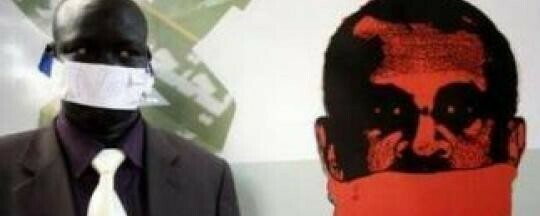In South Sudan, the right to freedom of expression, protected by both national and international laws, faces significant challenges, according to citizens who assert their voices in the face of limitations. Freedom of expression is a fundamental human right, yet many South Sudanese face limitations on expressing their opinions openly.
In interviews conducted by Radio Tamazuj, several South Sudanese acknowledge occasional freedom of expression but note restrictions in certain areas. They assert the importance of freely expressing opinions on all country-related matters, emphasizing citizens’ inherent right to do so.
Geoffrey David, a resident of Juba, noted that while there is some freedom of expression, there are also situations where expressing opinions is restricted. He emphasized, “It’s crucial for everyone to freely express their opinions. As a citizen, I feel compelled to address all the issues impacting our country. From my standpoint, citizens should have the inherent right to express themselves openly.”
He added, “Some might see you as opposing the government, but that’s not accurate. Everyone has the right to discuss current events. My message to state officials is simple: listen to the voices of the citizens instead of silencing them.”
Meanwhile, citizen Nelson Polis believes that humans have the right to speak freely, considering it a God-given feature. He added, “In South Sudan, we see a lack of freedom of expression, with many people fearing the government. Despite these challenges, we must strive to move forward as a country and embrace freedom of expression.”
On the other hand, Obio Daniel argued that citizens in South Sudan do not fully enjoy freedom of expression saying that while there is some freedom at times, it is often restricted. He added, “For instance, us young people in South Sudan cannot openly discuss our issues. If you speak out about a government matter, you risk immediate arrest without any investigation into the content of your speech.”
He emphasized that it is the government’s responsibility to ensure citizens’ freedom for the benefit of the state, stating, “In the current situation in the country, citizens should be able to speak freely without any fear.”
He emphasized the importance of patriotism and the need to freely discuss matters concerning it. He also emphasized the government’s responsibility to consider people’s opinions for the sake of instigating change.
In the same vein, lawyer and legal activist Luar Nyok Deng pointed out that the Constitution of South Sudan explicitly guarantees freedom of expression for every individual, as do the international conventions signed by South Sudan, which underscore people’s freedom to express their opinions without restraint.
He added, “Despite being included in the South Sudan Peace Agreement and enshrined in the Constitution, freedom of expression realistically is not fully accessible in South Sudan. The truth is, there is a lack of freedom of expression in the country. While everyone has the right to express themselves, they must not infringe upon the rights of others through hate speech, which is punishable by law.”
“Human rights organizations and the government are urged to educate citizens on the distinction between freedom of expression and hate speech to prevent any violations of others’ rights. However, there is a deficiency on the part of both human rights organizations and the government in this regard, leading to a dire human rights situation in the country. Rights are not given but taken, so human rights activists must work to reclaim and restore these rights,” he concluded.
Civil activist Lorobi Samuel stated that while it is the right of every individual to express their opinions freely, the extent of freedom of expression varies from one place to another.
According to Lorobi, “There is much work to be done to achieve full freedom of speech and other freedoms in South Sudan. Currently, there are certain topics that can be openly discussed while others are off-limits, as speaking about them may lead to prosecution and arrest by the government.”
He illustrated that while citizens may freely discuss some social issues, political topics often evoke fear among citizens, who are wary of getting into trouble with the authorities.
“Since gaining independence from Sudan, democracy has been elusive in the country. However, once elections are conducted and the country joins international and regional organizations, we can begin discussing democracy. This would grant citizens the absolute freedoms outlined in international conventions,” Lorobi explained.
Last month, South Sudan’s national security agents arrested former Juba Town Mayor Kalisto Ladu for speaking out against land-grabbing practices in Central Equatoria State.




